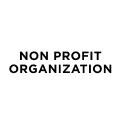Similar JobsPowered by Merojob AI

Deadline: Mar 05, 2026

Deadline: Mar 04, 2026

Deadline: Mar 10, 2026

Deadline: Mar 05, 2026


NGO / INGO / Development Projects
Full Time
|Job Opening ID: 20789
Location: Kathmandu, Nepal
Full/Part time: Full Time
Vacancy Type: Individual Consultancy
Rotational/Non Rotational: Non-rotational
Duration: 10 months
Education & Work Experience: Master's Degree with at least 3 years of experience
Deadline: 30 September 2024 by 5:30 PM NPT
The Position:
The purpose of this consultancy is to support the UNFPA Nepal country office in implementing the National Maternal and Newborn Health Acceleration Plan through providing onsite strategic, technical, policy, and programmatic support in the areas of EmONC, MPDSR, implementation of fistula roadmap, cervical cancer and other key maternal and newborn initiatives implemented by the Family Welfare Division (FWD), Ministry of Health and Population (MoHP).
Under the overall supervision of UNFPA Programme Analyst (SRHR) and reporting to the MNH section chief, Family Welfare Division, the consultant will play a key role in the efficient and effective implementation of priority MNH programs.
It is also expected that the consultant will contribute to regular reporting and information sharing related to regional grants implementation, including a new Regional Programme on SRHR data funded by DFAT – Australia, under which this consultancy will be funded. Close coordination and regular meetings with UNFPA Asia-Pacific Regional Office (through the UNFPA Nepal team) will be required as part of this consultancy.
How you can make a difference:
UNFPA is the lead UN agency for delivering a world where every pregnancy is wanted, every childbirth is safe and every young person's potential is fulfilled. UNFPA’s strategic plan (2022-2025), reaffirms the relevance of the current strategic direction of UNFPA and focuses on three transformative results: to end preventable maternal deaths; end unmet need for family planning; and end gender-based violence and harmful practices. These results capture our strategic commitments on accelerating progress towards realizing the ICPD and SDGs in the Decade of Action leading up to 2030. Our strategic plan calls upon UN Member States, organizations and individuals to “build forward better”, while addressing the negative impacts of the Covid-19 pandemic on women’s and girls’ access to sexual and reproductive health and reproductive rights, recover lost gains and realize our goals.
In a world where fundamental human rights are at risk, we need principled and ethical staff, who embody these international norms and standards, and who will defend them courageously and with full conviction.
UNFPA is seeking candidates that transform, inspire and deliver high impact and sustained results; we need staff who are transparent, exceptional in how they manage the resources entrusted to them and who commit to deliver excellence in programme results.
Job Purpose:
The purpose of this consultancy is to support the UNFPA Nepal country office in implementing the National Maternal and Newborn Health Acceleration Plan through providing onsite strategic, technical, policy, and programmatic support in the areas of EmONC, MPDSR, implementation of fistula roadmap, cervical cancer and other key maternal and newborn initiatives implemented by the Family Welfare Division (FWD), Ministry of Health and Population (MoHP).
You would be responsible for:
Under the overall supervision of the Programme Analyst (SRHR) and reporting to the chief of MNH section, FWD, the consultant is expected to provide programme and technical support as follows:
Qualifications and Experience:
Education:
Advanced clinical university degree in Obstetrics and Gynecology or other field directly related to the substantive area identified in this job description. Additional degree in public health would be an asset.
Knowledge and Experience:
Languages:
Required Competencies:
Values:
Core Competencies:
Functional Competencies:
Compensation and Benefits:
This position offers an attractive remuneration package including a competitive net salary plus health insurance and other benefits as applicable.
Disclaimer
UNFPA does not charge any application, processing, training, interviewing, testing or other fee in connection with the application or recruitment process. Fraudulent notices, letters or offers may be submitted to the UNFPA fraud hotline http://www.unfpa.org/help/hotline.cfm In accordance with the Staff Regulations and Rules of the United Nations, persons applying to posts in the international Professional category, who hold permanent resident status in a country other than their country of nationality, may be required to renounce such status upon their appointment.
Applying Procedure
Click on Login to Apply to get the email address / external link to apply.
Note: You need to be a registered jobseeker to view the applying email address / external link.
Apply Before: Sep 30, 2024
About the organization
UNFPA, the United Nations Population Fund, is a voluntary-funded international organization with a presence in over 150 countries, including Nepal. UNFPA is guided by the Programme of Action of the 1994 Cairo International Conference on Population and Development (ICPD) and the Sustainable Development Goals. Its mission is to ensure that every pregnancy is wanted, every childbirth is safe and every young person’s potential is fulfilled.
The work of UNFPA is based on the premise that all human beings are entitled to equal rights and protections. We focus on women and young people because these are groups whose ability to exercise their right to sexual and reproductive health is often compromised. Our work is informed by an understanding of population dynamics, human rights and cultural sensitivity.
UNFPA in Nepal
UNFPA support to Nepal began in 1971 and has evolved in response to the changing national contexts. The new country programme is aligned to national priorities, the 2030 Agenda for Sustainable Development, the ICPD Programme of Action, the Convention on the Elimination of All Forms of Discrimination against Women, the UNFPA strategic plan, 2022–2025, and the UNSDCF, 2023–2027. The programme aims to contribute to and accelerate achievement of the 2030 Agenda, in particular SDGs 3 and 5 and the three UNFPA transformative results, in line with the Decade of Action.
UNFPA partners with the Government of Nepal, youth and women’s organizations and development partners to advance its mission. Under the 9th Country Programme and in line with its mandate, UNFPA Nepal is working around the following areas:
Sexual and reproductive health and rights: UNFPA is supporting national efforts in Nepal to improve the sexual and reproductive health of the most marginalized adolescent girls and women. The Fund is largely focusing on youth aged 15-24 and the most marginalized women addressing both the demand and supply sides of reproductive health services to improve access to information and services on maternal health, family planning, and sexually transmitted infections, including HIV.
Gender equality, Gender-based violence and Harmful Practices : UNFPA’s support to the Government of Nepal under this overarching theme seeks to ensure that vulnerable groups experience greater self-confidence, respect and dignity. We are building national capacity in the health sector to address gender-based violence (GBV), prevent child marriage and other harmful practices, and working to enhance the knowledge and capacity of men, women and communities to GBV. Investing in young people, especially the vulnerable and the marginalized, is a priority for UNFPA Nepal. The country has a large adolescent and youth population. Nepal is experiencing a demographic window of opportunity, a ‘youth bulge’. Nepali youth face several development challenges, including access to education, employment, gender inequality, child marriage, youth-friendly health services and adolescent pregnancy. Yet, with investments in their participation and leadership, young people can transform the social and economic fortunes of the country. UNFPA Nepal works with the government and partners to advocate for adolescents and youth’s rights and investments, including education, livelihood skills and health, including sexual and reproductive health.
Disaster risk reduction and climate change: UNFPA is working on environmental sustainability, climate and disaster resilience, with a focus on ensuring that the specific needs and rights of women and girls, particularly those from vulnerable and marginalized groups, are addressed in humanitarian preparedness, adaptation, response, and recovery efforts.
Population dynamics: Population megatrends at the national and sub-national levels in Nepal continued rapid population growth, population aging, urbanization and migration — not only frame the entire development debate, they demand a reconsideration and re-conceptualization of what will be the main challenges for a new Nepal. Without an adequate understanding of how Nepal is changing from a demographic perspective, forward-looking planning and agenda setting will be of little value. Keeping this in mind, UNFPA Nepal is working with the government to ensure that national, sectoral and decentralized policies and plans address population dynamics and the interlinkages with gender equality, poverty reduction, the needs of young people, and reproductive health, including family planning.